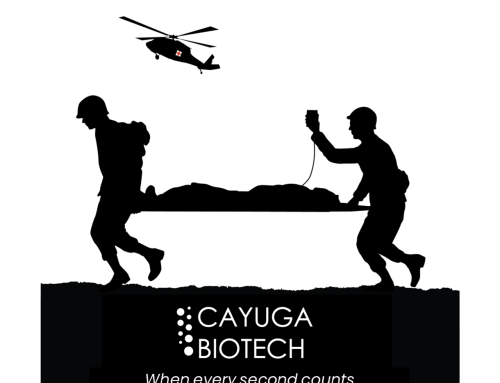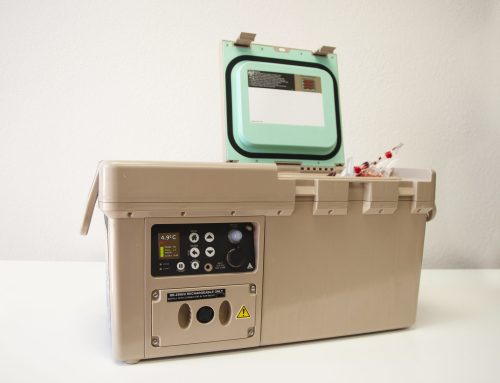With support from the USAMRMC Military Operational Medicine Research Program and MTEC, NOCTEM has advanced and validated a unique user-centered software platforms for the monitoring and management of sleep disturbances and the resulting fatigue and behavioral health in clinical and operational settings. The COAST platform is a clinician-centered digital tool to monitor and treat patients in real-time. While COAST is in the early stage of commercialization, NOCTEM has made great strides in developing a far-forward counterpart, the AIRE platform, in order to provide better support for the warfighter.
Military service is a demanding occupation that includes frequent periods of high operational tempo. Occupational requirements contribute to acute sleep disruption, circadian misalignment, and fatigue. In addition, chronic sleep disorders are prevalent in military samples. For instance, insomnia affects approximately 40% of active-duty service members. Military health surveillance data shows a 19-fold increase in the diagnosis of insomnia between 2000 and 2009 among service members. A 2019 study showed that insomnia increased by a factor of 650% between 1997 and 2011. Both acute and chronic sleep disruption adversely affects combat readiness, physical and mental health, productivity, and safety.
NOCTEM’s solutions focus on maximizing usability, impact, relevance and user experience for all intended users, from deployed service members, medical leadership, patients, and healthcare providers, in operational or clinical settings. In real-world operational or clinical settings that are often performing with limited resources and personnel, efficiency is key for rapid identification of individual or group-level challenges, and personalized, adaptable interventions to support combat readiness, resilience, and health.
The COAST system can effectively integrate digital health technology to support evidence-based sleep treatments between clinicians and service members. Clinicians tested the COAST platform, integrating the platform to fit their clinical workflows, and demonstrated the adaptability of the COAST solution. Although the average duration of the sleep treatments (average duration 3 weeks) was briefer than originally intended (6 weeks), meaningful reductions in insomnia severity, sleep latency, and duration of early morning awakenings, as well as in daytime symptoms of PTSD, depression, and anxiety were detected when clinicians utilized the COAST platform. Together, the findings suggest that brief, technology-augmented, behavioral sleep interventions for patients presenting for treatment in military treatment facilities can yield clinically meaningful improvements in sleep and behavioral health symptoms.
As mentioned, AIRE is COAST’s far forward counterpart, enabling battlefield medics to manage the sleep disturbances of the warfighter. The AIRE platform is a promising approach for self-management of sleep, fatigue, and behavioral health issues including acute stress reactions and adjustment disorders in garrison, for upstream monitoring and management before challenges need to be escalated to clinical management. Further, the AIRE platform can augment behavioral health officers’ capabilities to monitor and manage large groups of service members and deploy evidence-based digital content rapidly, early, and upstream based on results from just-in-time and prospective assessments.
NOCTEM demonstrated technical and operational capabilities both in garrison and in the field. Results from this feasibility study suggest that the AIRE platform may be most impactful and have multiple use cases in garrison. Lessons learned, observations gathered, and feedback and requests received over the course of the feasibility study are the basis for the proposed continuation effort. Specifically:
- Soldiers and medics positively received the AIRE training and app.
- Medics reported that the utility of the AIRE platform was greater while in garrison. Mission requirements during field exercises limited soldiers’ and medics’ bandwidth to integrate new digital tools in their daily routines.
- High levels of sustained engagement by soldiers across operational settings.
NOCTEM is continuing the development of the COAST and AIRE systems by conducting a face-to-face comparative effectiveness trial of insomnia care as usual and insomnia care delivered via NOCTEM digital sleep hubs using the COAST platform at three Military Treatment Facilities, with follow-on funding from the JWMRP21. They will also continue to advance the AIRE prototype for customized applications in operational settings with our WRAIR (Wilk, Quartana, Gonzalez) and NHRC (Markwald) collaborators.
This project was funded through MTEC’s Tele-Sleep Decision Assist Tool Request for Proposals (Solicitation #19-02-Tele-Sleep).
About NOCTEM:
NOCTEM is the leader in Sleep Cybernetics. NOCTEM creates, validates, and deploys science-driven and technology-augmented decision support tools to monitor, detect, and manage sleep and circadian disturbances and the resulting fatigue in real-time and in the most efficient manner, to treat sleep disturbances and optimize related functional outcomes such as performance, readiness and overall health. NOCTEM is led by women diverse backgrounds and areas of expertise spanning behavioral sleep medicine, clinical research and operations, UX/UI design, software development, data science, cloud infrastructure. In addition, NOCTEM works with 6 additional contracting research associates who support our ongoing quality improvement and research efforts with the USAF, Navy, and Army. Additional information about the company and platforms can be found here:
COMPANY: www.noctemhealth.com
COAST overview for clinicians: www.noctemhealth.com/solutions
COAST overview for patients: https://vimeo.com/810314888




